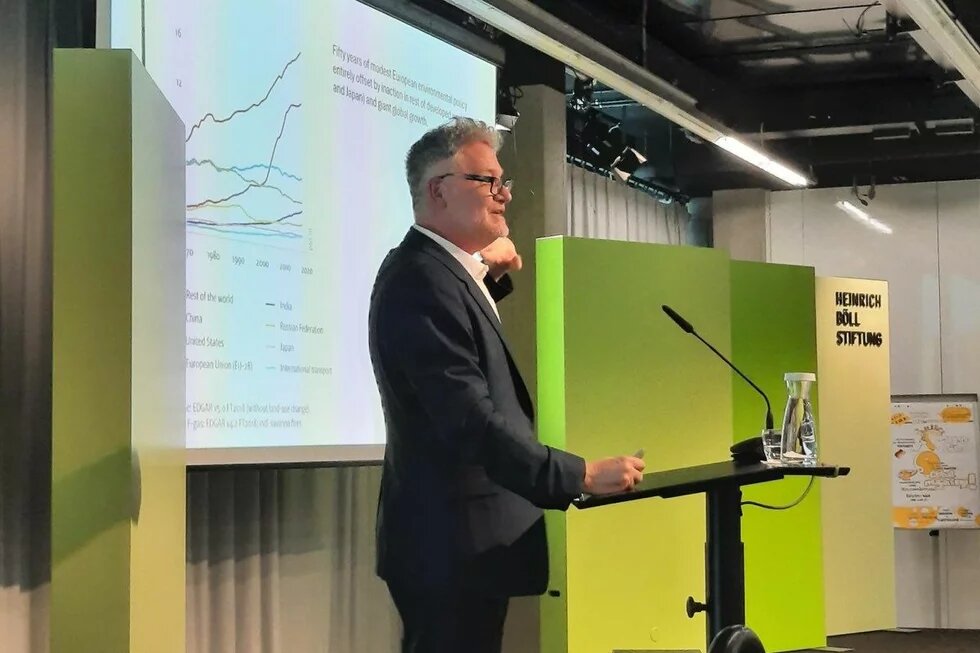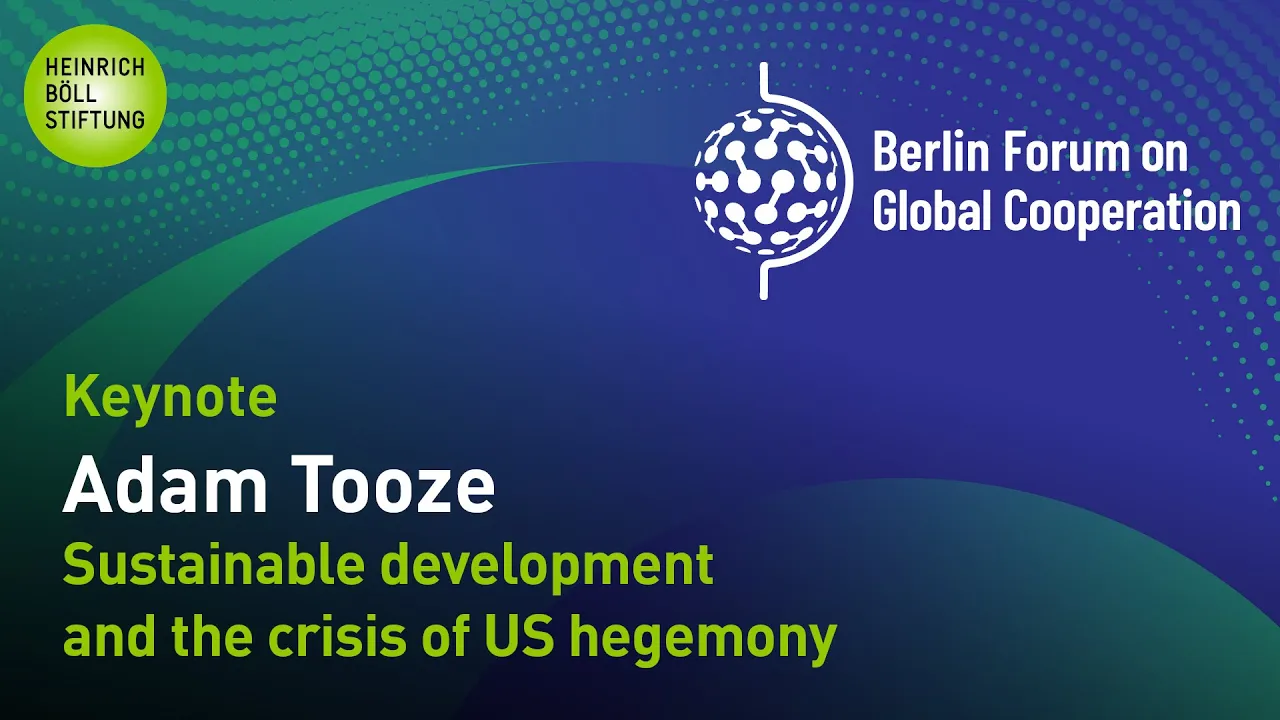Has time been called on the Sustainable Development Goals? Adam Tooze argues in his keynote speech at the Berlin Forum on Global Cooperation 2025, that the Sustainable Development Agenda has always been in conflict with U.S. hegemony. But what can be done about the accelerating climate crisis? And what are the options for Europe?

This is a summary of the keynote speech by Adam Tooze at the Berlin Forum on Global Cooperation.
In March, on the occasion of the adoption of A Day of Hope and Peaceful Coexistence, the United States sent a letter to the United Nations (UN) denouncing the 2030 Agenda and the Sustainable Development Goals (SDGs). While many responded with shock, Tooze notes that cynics might say the U.S. is simply being honest about its intentions. This could, in turn, open the door to a more critical assessment of the SDGs, as so far they have failed to deliver.
Thinking critically about the SDGs, Tooze suggests they should less be seen as the culmination of decades of environmental thought but rather the last moment when a Western-led concept could secure universal approval. We may now be witnessing the obsolescence of a Western-driven sustainable development paradigm.
He questions why it was ever assumed that sustainable development could be compatible with U.S. hegemony. If countries like Brazil or Nigeria were to develop fully, the geopolitical status quo would inevitably be disrupted. For instance, if Nigeria reached only Turkey’s GDP per capita, it would stand on par with France or Britain.
If economic development is incompatible with the existing order, so too is environmental sustainability. There is no precedent for modern hegemony aligning with sustainability: previous models were built on fossil fuel exploitation and biodiversity-threatening agro-industry. The notion that the world could transition to a sustainable, post-fossil system while maintaining current power structures under American leadership, he argues, is extremely unlikely. Europeans often assume that economic success leads to integration, but historically, development has been about sovereignty.
Yet the challenge of achieving net-zero emissions by 2050 or 2060 remains. Europe, despite all its rhetoric, has achieved only modest reductions over three decades of climate policy, while the U.S. has increased emissions since the signing of the climate convention. Europe therefore has little to teach the world on sustainability, though there are steps it could take. Tooze emphasises that it must recognize the scale of the climate emergency and its uneven regional impacts—places like Iraq will become unlivable in summer within the next decade.
Finally, he stresses the need for investment on the scale of percentage points of GDP—not small blended-finance schemes, but large commitments. What Europe now allocates to its military could, and should, be matched for climate protection and energy transition. Solutions to decarbonizing heavy industries must be found where they are located: for steel, that is Asia, both in terms of the location of the industry and its ownership. Regarding the cement industry, European corporations still play a leading role. Taking a lead in decarbonizing the cement industry could represent a meaningful global contribution.
The presention (pdf) as well as the full transcript (pdf) are available for download. Addtionally, you can watch the full keynote speech below.
Berlin Forum on Global Cooperation 2025 - Keynote Adam Tooze - Heinrich-Böll-Stiftung
 Watch on YouTube
Watch on YouTube

